第100章 CHAPTER IX.(2)
Sentence had been already given; judges, more honest, cannot, without difficulty, reverse old decrees; and the present possessors of my estates are too powerful, too intimate with the governors of the earth, for me to hope I shall hereafter be more happy. God knows my heart; I wish the present possessors may render services to the state equal to those rendered by the family of the Trencks.
There is little probability I shall ever behold my noble friends in Hungary more. Here I bid them adieu, promising them to pass the remainder of any life so as still to merit the approbation of a people with whose ashes I would most willingly have mingled my own.
May the God of heaven preserve every Hungarian from a fate similar to mine!
The Croats have ever been reckoned uncultivated; yet, among this uncultivated people I found more subscribers to my writings than among all the learned men of Vienna; and in Hungary, more than in all the Austrian dominions.
The Hungarians, the unlettered Croats, seek information. The people of Vienna ask their confessors' permission to read instructive books. Various subscribers, having read the first volume of my work, brought it back, and re-demanded their money, because some monk had told them it was a book dangerous to be read. The judges of their courts have re-sold them to the booksellers for a few pence or given them to those who had the care of their consciences to burn.
In Vienna alone was my life described as a romance; in Hungary Ifound the compassion of men, their friendship, and effectual aid.
Had my book been the production of an Englishman, good wishes would not have been his only reward.
We German writers have interested critics to encounter if we would unmask injustice; and if a book finds a rapid sale, dishonest printers issue spurious editions, defrauding the author of his labours.
The encouragement of the learned produces able teachers, and from their seminaries men of genius occasionally come forth. The world is inundated with books and pamphlets; the undiscerning reader knows not which to select; the more intelligent are disgusted, or do not read at all, and thus a work of merit becomes as little profitable to the author as to the state.
I left Vienna on the 5th of January, and came to Prague. Here Ifound nearly the same reception as in Hungary; my writings were read. Citizens, noblemen, and ladies treated me with like favour.
May the monarch know how to value men of generous feelings and enlarged understandings!
I bade adieu to Prague, and continued my journey to Berlin. In Bohemia, I took leave of my son, who saw his father and his two brothers, destined for the Prussian service, depart. He felt the weight of this separation; I reminded him of his duty to the state he served; I spoke of the fearful fate of his uncle and father in Austria, and of the possessors of our vast estates in Hungary. He shrank back--a look from his father pierced him to the soul--tears stood in his eyes--his youthful blood flowed quick, and the following expression burst suddenly from his lips:- "I call God to witness that I will prove myself worthy of my father's name; and that, while I live, his enemies shall be mine!"At Peterswald, on the road to Dresden, my carriage broke down: my life was endangered; and my son received a contusion in the arm.
The erysipelas broke out on him at Berlin, and I could not present him to the King for a month after.
I had been but a short time at Berlin before the well-known minister, Count Hertzberg, received me with kindness. Every man to whom his private worth is known will congratulate the state that has the wisdom to bestow on him so high an office. His scholastic and practical learning, his knowledge of languages, his acquaintance with sciences, are indeed wonderful. His zeal for his country is ardent, his love of his king unprejudiced, his industry admirable, his firmness that of a man. He is the most experienced man in the Prussian states. The enemies of his country may rely on his word.
The artful he can encounter with art; those who menace, with fortitude; and with wise foresight can avert the rising storm. He seeks not splendour in sumptuous and ostentatious retinue; but if he can only enrich the state, and behold the poor happy, he is himself willing to remain poor. His estate, Briess, near Berlin, is no Chanteloup, but a model to those patriots who would study economy.
Here he, every Wednesday, enjoys recreation. The services he renders the kingdom cost it only five thousand rix-dollars yearly;he, therefore, lives without ostentation, yet becoming his state, and with splendour when splendour is necessary. He does not plunder the public treasury that he may preserve his own private property.
This man will live in the annals of Prussia: who was employed under the Great Frederic; had so much influence in the cabinets of Europe;and was a witness of the last actions, the last sensations, of his dying king; yet who never asked, nor ever received, the least gratuity. This is the minister whose conversation I had the happiness to partake at Aix-la-Chapelle and Spa, whose welfare is the wish of my heart, and whose memory I shall ever revere.
I was received with distinction at his table, and became acquainted with those whose science had benefited the Prussian states; nor was anything more flattering to my self-love than that men like these should think me worthy their friendship.
Not many days after I was presented to the court by the Prussian chamberlain, Prince Sacken, as it is not customary at Berlin for a foreign subject to be presented by the minister of his own court.
Though a Prussian subject, I wore the Imperial uniform.